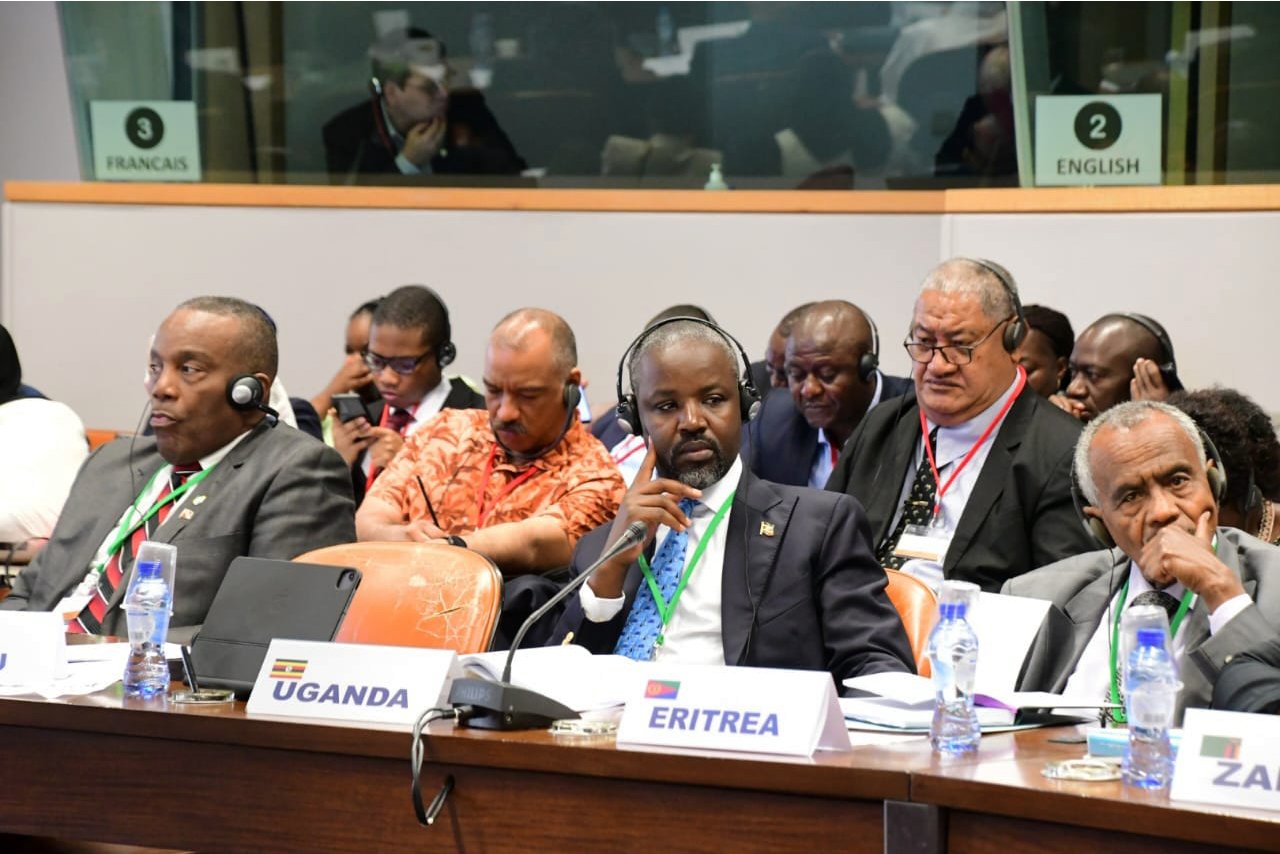Prime
Uganda declines to sign new EU-ACP deal

Uganda’s deputy Speaker of Parliament Thomas Tayebwa (L) and other African leaders at the 63rd Organization of African, Caribbean, and Pacific States (OACPS) - European Union Joint Parliamentary Assembly in Brussels, Belgium recently. PHOTOS/ PARLIAMENT PRESS TEAM
What you need to know:
- The decision which was announced Friday, highlights Uganda's commitment to thoroughly understanding and aligning with the key elements of the agreement before formalizing its endorsement.
The Government of Uganda has deferred the signing of the Partnership Agreement between the European Union (EU) and the Organization of African, Caribbean, and Pacific States (OACPS), citing lack of clarity on key concepts.
The decision which was announced Friday, highlights Uganda's commitment to thoroughly understanding and aligning with the key elements of the agreement before formalizing its endorsement.
The Partnership Agreement, which looks to ‘shape relations between the EU and OACPS over the next two decades,’ spans a spectrum of critical areas, including investment, environmental sustainability, climate change, irregular migration, and good governance.
While expressing alignment with many aspects of the agreement, Uganda has raised concerns and reservations on specific concepts, prompting internal consultations to ensure a unified national perspective. Key concepts under scrutiny include marginalized groups, sex, gender equality, sexual and gender-based discrimination, vulnerable groups, and sexuality education.
One noteworthy concern outlined by Uganda is the introduction of ‘Regional Councils of Ministers and Regional Parliamentary Assemblies for each of the African, Caribbean, and Pacific Regions, alongside maintaining the EU as a single bloc.’ Uganda argues that this arrangement may perpetuate historical and structural separations, potentially impacting fair engagement among member states.
A critical point of contention is the placement of the Agreement above existing bilateral or other agreements between individual EU Member States and OACPS States. Uganda questions the potential undoing of bilateral relations and regional commitments developed over the years, emphasizing the need to safeguard existing interstate relations.
Moreover, the provision granting the OACPS-EU Council of Ministers the power to adopt binding decisions on all parties raises constitutional concerns for Uganda.
The government further asserts that ‘internal consultations will continue to ensure the supremacy of the Ugandan Constitution’ in this regard.
Despite these reservations, Uganda affirms its openness to future dialogues, processes, and forums aimed at addressing concerns and involving OACPS members who, like Uganda, have chosen not to sign the Agreement today.
This decision reflects Uganda's commitment to thorough internal deliberations and alignment with its national interests before committing to the long-term implications of the EU-OACPS Partnership Agreement.





